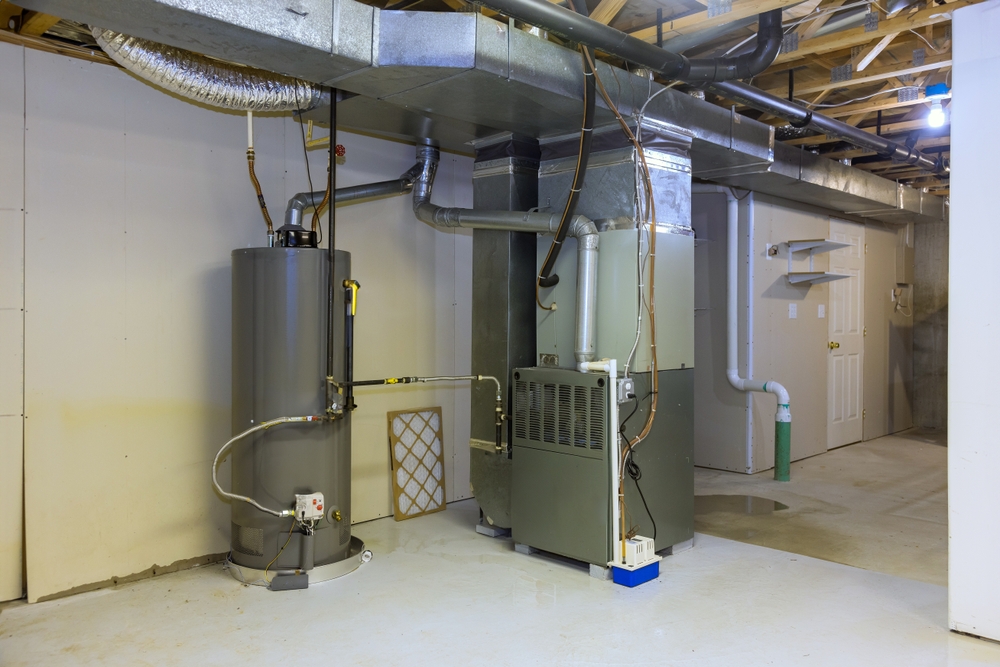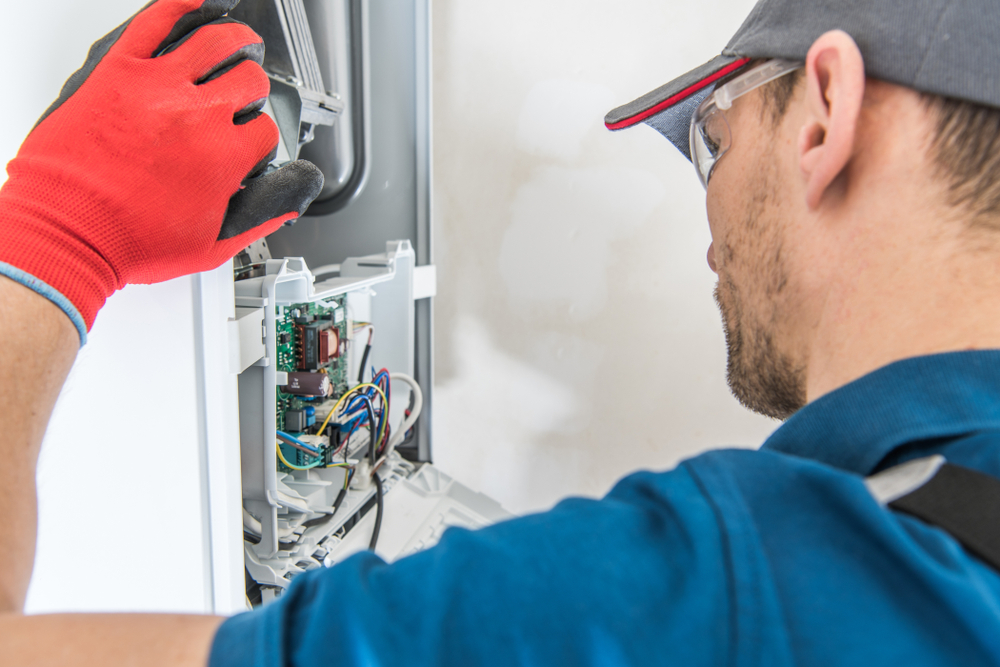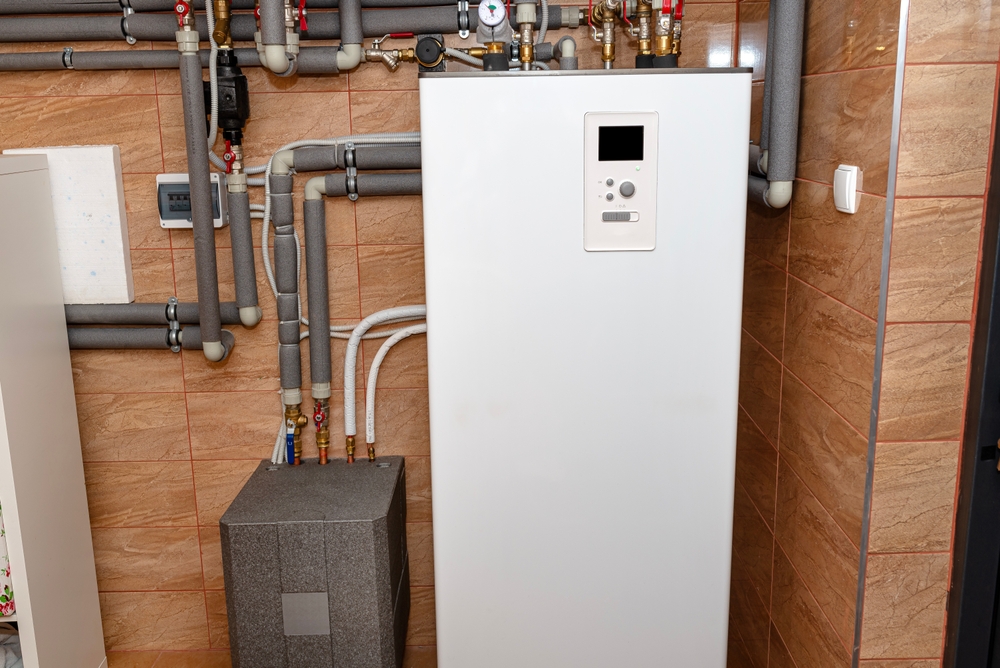Blog
What Size Water Heater Do I Need?

If it’s time to install a new water heater in your home or replace the old one, the first question you’re probably asking yourself is: “What size water heater do I need?” And it should be! After all, choosing the right-sized water heater for your home ensures a reliable supply of hot water. An improperly sized water heater, on the other hand, can lead to a range of issues — from cold showers to unpredictable temperature fluctuations.
When selecting a water heater, it's important to assess your household's unique hot water needs. Factors like the number of occupants, their shower and bathing habits, and the hot water demands of appliances all play a role in determining the appropriate water heater size. Underestimate your hot water requirements and you might get stuck with an undersized system that struggles to maintain temperature, while overestimating can lead to an oversized and less efficient unit.
In this guide, we'll compare different types of water heaters and explore key considerations for proper water heater size. By understanding your household's hot water usage patterns and needs, you can make an informed decision that directly impacts your home’s comfort and efficiency.
Understanding Water Heater Sizing
When it comes to choosing the right size water heater for your home, one of the key metrics to consider is the unit's capacity. Typically measured in gallons, this storage capacity represents how much hot water the heater can hold and have ready for use at any given time.
Tank water heaters store a set volume of hot water — ranging anywhere from 20 to 80 gallons — that can be drawn upon as needed. This storage capacity makes them well-suited for meeting the demands of multiple, simultaneous hot water uses, such as running the dishwasher while someone is taking a shower.
In contrast, tankless or "on-demand" water heaters do not store hot water. Instead, they heat water only when it is needed, delivering a continuous flow of hot water as long as the tap is running. While tankless units have virtually unlimited hot water, they may be limited in the number of fixtures they can supply at once without compromising temperature.
Factors to Consider When Deciding on Water Heater Size
When determining what size water heater you need, it's crucial to match the unit's capacity to your household's unique hot water needs. Here are some factors to consider:
Household Size
Your hot water usage is directly influenced by the number of people in your household. In other words, what size water heater you need for a family of three will differ greatly from what size water heater you need for a family of seven.
Daily Water Usage
Some of the most common household activities that require hot water are showers, washing dishes, and laundry. Taking into account the average hot water consumption rates for these activities, you should estimate 10-15 gallons of water per occupant and size your water heater tank accordingly.
Peak Hour Demand
Consider when the appliances that consume hot water are being used simultaneously. For example, do you run your washing machine while you shower in the morning? Are multiple showers being taken at the same time? These moments constitute peak demand and will determine the limit of your water heater’s size.
Type of Water Heater
Because they’re designed to store large amounts of water, traditional tank water heaters take up more space than their tankless counterparts. Because of this, tank water heaters may be better suited for larger homes while tankless water heaters are generally more functional in constricted environments. You might also consider an energy-efficient solar water heating system, where additional sizing considerations are needed to account for your home’s solar resources and orientation.
Sizing Guidelines for Different Types of Water Heaters
Tank Water Heaters
When sizing a traditional, tank-style water heater, the key metric to consider is the First Hour Rating (FHR). This represents the maximum number of gallons of hot water the heater can supply in one hour, starting with a full tank.
To determine the right FHR for your household, you'll need to estimate your peak hour of hot water demand — that is, the highest volume of hot water your family is likely to use in a single hour. You can use resources like the Energy Saver water heater sizing chart from the Department of Energy to estimate this based on factors like the number of occupants and common hot water uses.
Once you've identified your peak hour demand, match it to the FHR of your desired water heater model (typically be found on the Energy Guide label affixed to the unit). This will ensure the unit can meet your maximum hourly requirements without running out of hot water.
Tankless Water Heaters
Sizing a tankless water heater involves a few more steps. Instead of storage capacity, tankless units are rated by their maximum flow rate, measured in gallons per minute (GPM).
To size a tankless heater properly, you'll need to:
- Determine your peak hour of hot water demand and identify the number of fixtures (e.g. showers, sinks, appliances) that may be used simultaneously during that time.
- Calculate the flow rate (GPM) of each fixture by either checking the manufacturer specs or measuring the flow yourself.
- Add up the flow rates of all fixtures used during the peak hour to determine your maximum GPM requirement.
- Factor in the required temperature rise by calculating the difference between your incoming cold water temperature and 120°F, the desired hot water temperature. This will help you select a tankless unit with sufficient heating power.
By aligning your household's peak hot water needs with the flow rate and heating capabilities of a tankless heater, you can ensure reliable, on-demand hot water without any concerns about running out.
Additional Considerations
Energy Efficiency
How long does your water heater take to heat up? The answer to this question — along with the size of your water heater — affects energy consumption and, therefore, the amount you’re paying in utility bills. Water heaters with tanks constitute almost 20% of your home’s energy consumption. Switching to a tankless system can help reduce energy costs by up to 34%. Not to mention, they tend to last longer than tank systems.
Check your system’s (Uniform Energy Factor (UEF) rating for estimated energy consumption rates and their associated costs. Based on what you find, there may be more energy-efficient types of water heaters available.
Space and Installation
Space limitations in your home might also impact what size water heater you need. Tankless water heaters are typically compact and, in some cases, can be mounted and installed on walls. Tank water heaters, on the other hand, require greater dedicated space. In both cases, pay special attention to installation costs to select the best option for your budget.
When to Consult a Professional
Whenever working with water-based plumbing around electricity, it’s important to consult with a licensed plumber or HVAC professional who will take appropriate safety precautions when installing or replacing new water heaters. Especially in complex household configurations or when solar/hybrid systems are installed, professional assistance is necessary.
Water heater specialists like T. Webber are experts when it comes to water heater repair and replacement. They will guide you through the accurate sizing and installation of your new unit, taking into account all of the factors reviewed in this article.
Talk to Us Today
Whether you’re considering a tank water heater or a tankless system, choosing the right size is the first step in your selection process. There are different types of water heaters to choose from, each with its pros and cons depending on your household size and energy requirements.
Contact T. Webber today for personalized advice and water heater installation services. We will assess your household needs before you make a decision, ensuring you make the right choice!






